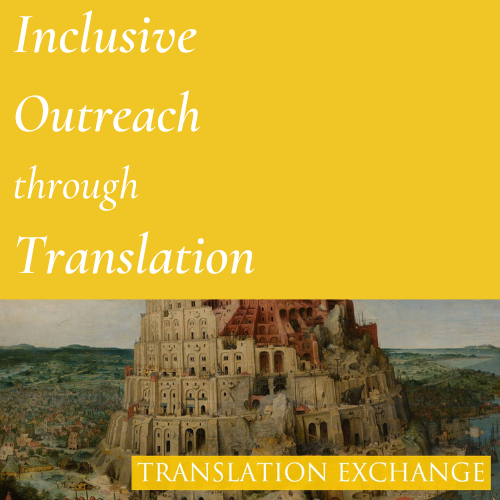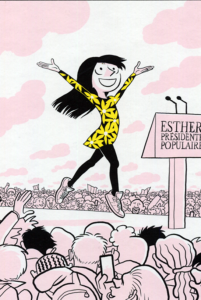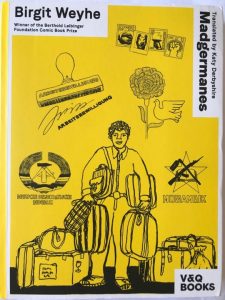Languages can be the most inclusive subject on any curriculum, and universities can play a role in making that happen.
The Inclusive Outreach through Translation Project launched at the Queen’s Translation Exchange in 2021, in partnership with the Faculty of Medieval and Modern Languages (Oxford) and the Stephen Spender Trust. The project aims to ensure that QTE’s and SST’s creative translation resources are accessible, engaging and appeal to as many young language learners as possible.
We believe that languages can be the most inclusive subject on the curriculum, and that universities can play a key role in making that happen. We want to make sure that our materials and activities create a sense of belonging, excitement and fun around MFL for all students, regardless of their background.
The project has been steered by a group of teachers, university students, third-sector experts and academics (see below), and led by Dr Charlotte Ryland with Catriona Parry.
Teaching Resources
The Translation Exchange regularly publishes teaching resources for Modern Languages teachers in the UK, regularly accessed by the 1,800+ teachers registered for our Anthea Bell Prize for Young Translators. With Inclusive Outreach through Translation, we created a selection of new teaching resources which explicitly seek to include and appeal to the broadest range of young people by taking account of factors including ethnicity, socio-economic background, gender and sexuality. We also conducted a review of our existing Anthea Bell Prize teaching materials, particularly the poetry resources, to explore how these could be more accessible, engaging and empowering for young language learners. These new and updated resources will be made available as part of the Anthea Bell Prize in 2023-24. Two samples resources are published below.
Partnership with Institut français and Goethe-Institut London
In 2022 we partnered with the French and German cultural institutes in London to create, test and publish inclusive resources for French and German learners. Through consultation with partner organisations poco.lit (Berlin) and ATLAS (Arles) we selected literary texts particularly suited to this inclusive approach and then worked with Stephen Spender Trust Associates to design and deliver workshops in secondary schools in Suffolk, Merseyside and Cambridgeshire. Observations of these workshops and interviews with participating teachers have contributed to the project’s overall principles and guidelines, to be published in autumn 2023.
We really enjoyed the workshop and the students got a lot out of the opportunity. Students found it fun and picked up new skills along the way. It was accessible to all of them, and they especially enjoyed the opportunity to learn more about careers in languages.
Publications
We held a number of roundtable discussions to review new and existing Anthea Bell Prize resources and to gather feedback and ideas from teachers, Oxford University students, academics, and other translation and language specialists. We worked with teachers to test the new resources with young people across the UK.
Alongside these Anthea Bell Prize resources, we are developing a set of guidelines and principles for inclusive creative translation, which will be published on our website in autumn 2023. We are developing these guidelines and principles in consultation with the project’s steering committee. This guidance will inform the development of all future QTE and SST materials, and is also designed to support teachers and schools to deliver their own creative translation activities in the classroom, to inspire and encourage more young people to continue studying and engaging with languages at school, university and beyond.
The Inclusive Outreach through Translation Project is supported by the Oxford Humanities Culture Change Fund, the Faculty of Modern and Medieval Languages at the University of Oxford, the Franco-German Cultural Fund, the Institut français London, the Goethe-Institut London, The Queen’s College Oxford, and the Stephen Spender Trust.
We are especially grateful to all the teachers, students, committee members and others who have given generously of their time and expertise in support of this project.
Steering Committee
Lead: Dr Charlotte Ryland (charlotte.ryland@queens.ox.ac.uk)
Coordinator: Catriona Parry (catriona.parry@lincoln.ox.ac.uk)
- Professor Michelle Bolduc, University of Exeter
- Zac Brigg, MFL Teacher
- Felicity Callanan, MFL Teacher
- Yvonne Kennedy, Herts for Learning Ltd
- Dr Holly Langstaff, Queen’s College Translation Exchange
- Sharvi Maheshwari, University of Oxford
- Katja Mahnkopf, MFL Teacher
- Professor Nicola McLelland, University of Nottingham
- Georgia Nasseh, University of Oxford
- Craig Neville, University College Cork
- Pam Stallard, MFL Teacher
- Maud Waret, MFL Teacher
- Dr Chantal Wright, Institute for Translation and Interpreting, ZHAW
- Ye-Ye Xu, University of Oxford






